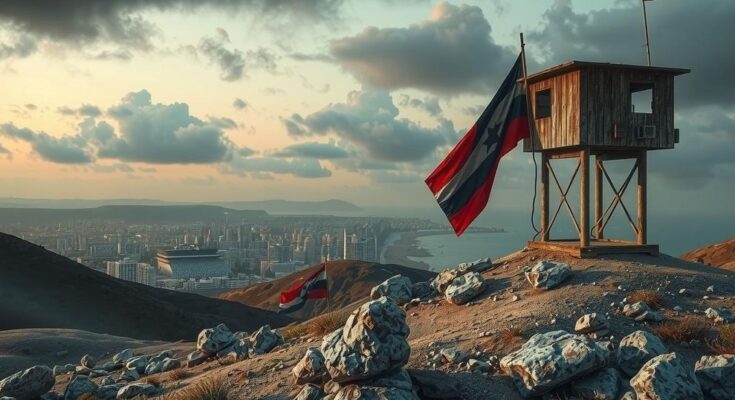M23 rebels advanced into Bukavu, eastern DRC’s second-largest city, escalating conflicts with government forces. They reportedly seized a second airport and surrounded Kavumu airport, exacerbating the humanitarian crisis affecting 350,000 displaced individuals. The Congolese government condemned the rebels for violating a ceasefire amidst ongoing tensions and military operations in the region.
On Friday, M23 rebels advanced into Bukavu, the second-largest city in eastern Democratic Republic of the Congo (DRC), according to local and civil society leaders. Reports indicate that the rebels entered the Kazingu and Bagira zones, moving towards the city center, as gunfire was heard throughout the area. Videos surfaced online depicting the rebels marching towards Bagira, accompanied by shouts acknowledging their significant presence.
Earlier in the day, the M23 rebels announced they had seized a second airport in the region amidst their ongoing conflict with government forces. The United Nations has alerted that this recent surge in fighting has resulted in 350,000 internally displaced individuals lacking adequate shelter. Witnesses described seeing M23 forces surrounding Kavumu national airport and fleeing Congolese soldiers amid the clashes.
The Associated Press has yet to verify control over Kavumu airport, located around 30 kilometers from Bukavu, the capital of South Kivu province. Government officials and civil society representatives have not provided immediate comments on the situation, which escalated following the M23’s takeover of Goma’s international airport in late January. Goma is pivotal as a trade hub in the ongoing humanitarian crisis that has displaced approximately 6.5 million people.
M23 spokesperson Lawrence Kanyuka stated on the social media platform X that the group’s objective in securing Kavumu airport was to “eliminate the threat at the source,” claiming the airport posed significant danger to the civilian population. Meanwhile, the DRC’s Communication Ministry condemned the rebels for disregarding a ceasefire, asserting that they are instigating urban warfare by assaulting positions of the FARDC, the Congolese military, which aims to minimize bloodshed in Bukavu.
The situation in eastern DRC remains precarious, marked by continued tensions between the Congolese government and M23 rebels. The Congolese government has designated M23 as a terrorist faction, while the United Nations and United States classify it distinctly as an armed rebel group. Accusations have surfaced from the DRC government, claiming Rwandan support for the M23, which Rwanda has denied, suggesting instead that the DRC collaborates with the FDLR, a Hutu armed group linked to the Rwandan genocide’s perpetrators.
The military landscape continues to evolve, with ongoing skirmishes resulting in further displacement and humanitarian challenges. Analysts express concern that the ongoing instability may exacerbate regional conflicts, highlighting the deaths of several Southern African Development Community peacekeepers since the resurgence of rebel offensives.
The M23 rebels’ advancement into Bukavu marks a critical escalation in their conflict with the DRC government, resulting in significant humanitarian concerns. As fighting continues, cities like Bukavu and strategic locations like Kavumu airport are increasingly jeopardized, leading to displacement and potential regional instability. International entities observe the growing crisis, emphasizing the need for a resolution amid accusations among neighboring nations.
Original Source: www.voanews.com




